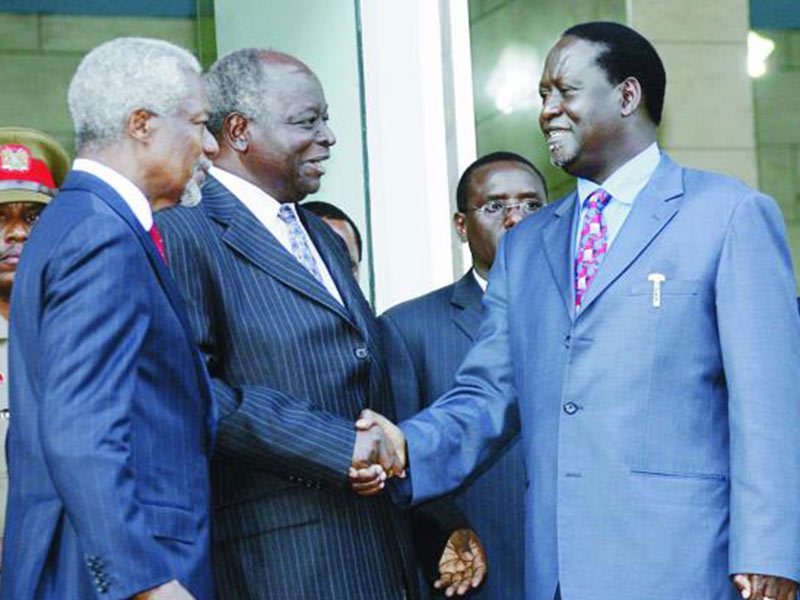×
The Standard e-Paper
Home To Bold Columnists

A close aide to retired President Mwai Kibaki has opened up on how they scuttled Raila Odinga’s quest for the position of Prime Minister after the 2002 elections.
Speaking about the power struggles that nearly crippled the new Narc Government after the fall of Kanu, former State House Comptroller Matere Keriri revealed how they frustrated Raila’s push for implementation of the Memorandum of Understanding (MoU) that earmarked the premiership for him.